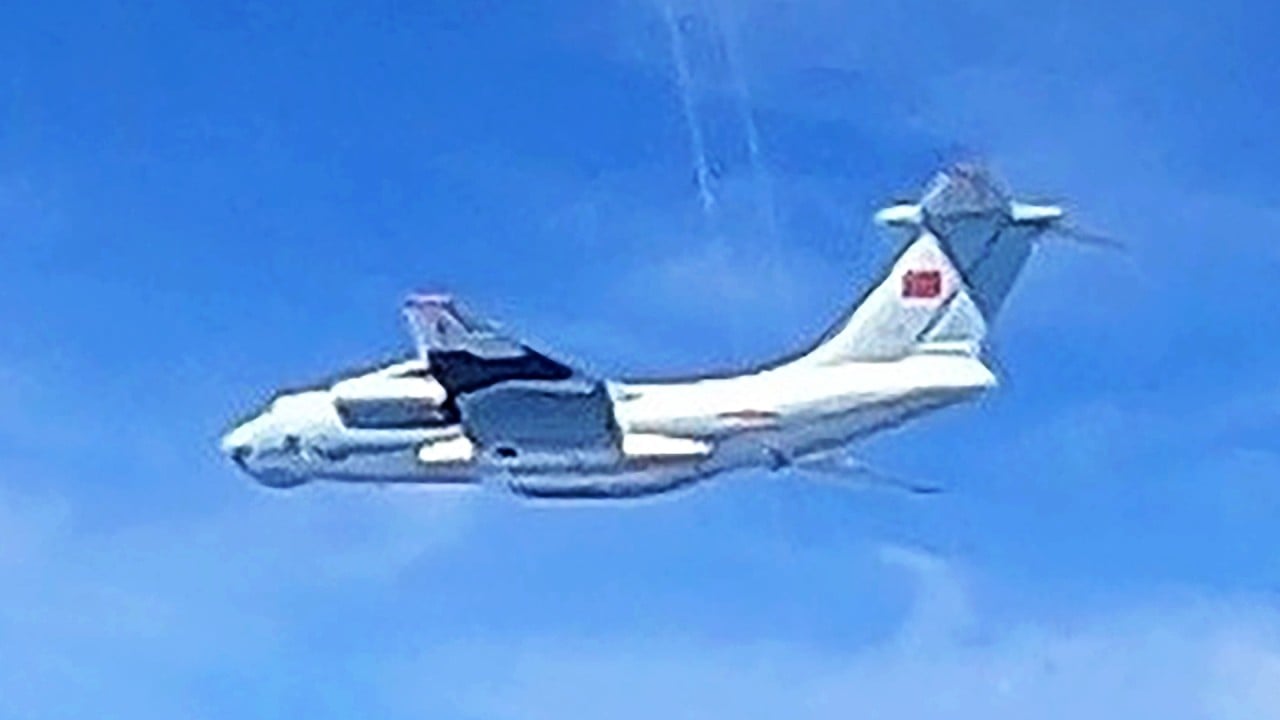
South China Sea: Chinese coastguard ships, warplanes engaged in ‘parallel escalation’ off Malaysia, US think tank says
- Chinese coastguard ships ‘harassed’ Malaysian vessels near the Kasawari gas field last month, the Asia Maritime Transparency Initiative said in a report
- An earlier patrol by 16 Chinese military aircraft, which Malaysia initially said had violated its airspace, was ‘likely not a coincidence’, the report said
Malaysia scrambles jets to intercept ‘incursion’ by 16 Chinese military planes
AMTI, part of the Washington-based Centre for Strategic and International Studies, closely tracks developments in the South China Sea using data from tracking transponders and satellite images.
The pipe-laying vessel hired by Malaysia was initially shadowed by a smaller Zhaolai-class patrol ship with the bow number 5403, AMTI said, before it was replaced by the CCG 5303, a larger Zhaoduan-class Chinese coastguard cutter.
This second Chinese ship remained in the area even after the Bunga Mas Lima, an auxiliary ship of the Royal Malaysian Navy whose deployment coincided with the arrival of the first pipe-laying vessel, had returned to base on June 13, the report said.
Last week, following the arrival of a second pipe-laying vessel, the CCG 5303 traversed the area in a manner that showed it “clearly” objected to the activity, AMTI said, adding that Chinese coastguard activity appeared to be continuing near the gas field – more than 1,000km off mainland China’s coast – at the time of the report’s publication.
The CCG 5303 passed “less than 400 yards (365 metres) from the Sapura 3000, and about 200 yards from one of its offshore supply ships, the Bes Elite,” AMTI said in its report.
“This is at least the third time since last spring that the Chinese coastguard has harassed Malaysian energy exploration … It demonstrates again Beijing’s persistence in challenging its neighbours’ oil and gas activities within their own exclusive economic zones.”
The report said the earlier Chinese air patrol was “likely not a coincidence [and] suggests Beijing’s willingness to engage in parallel escalation to pressure other claimants to back down”.
“While the current tensions are likely to subside once installation of the wellhead is complete, a second phase of work at Kasawari slated for 2022 suggests that friction between Chinese law enforcement and Malaysian offshore energy operations off Sarawak is almost guaranteed to continue,” it added.

01:58
Malaysia to summon Chinese envoy after airspace ‘intrusion’
There has been no public display of diplomatic friction between the two countries since Malaysia’s June 1 protest over the controversial Chinese air patrol, which Foreign Minister Hishammuddin Hussein initially said had violated “Malaysian airspace and sovereignty” – with China’s ambassador to the country, Ouyang Yujing, being summoned over the matter.
US military backs Malaysia’s claim of 16 Chinese planes near airspace
Philippines has a secret weapon in South China Sea: the female voice
Responding to parliamentary questions on the episode, Defence Minister Ng Eng Hen said state aircraft were not obliged to file their flight plans in advance “so long as they fly with due regard for the safety of other aircraft”.



